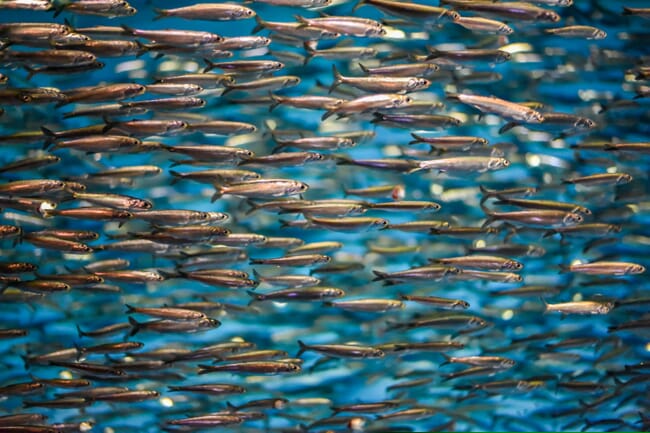
The F3 Challenge is the global seafood industry’s leading contest to spark innovation in the development and commercialisation of aquaculture feeds free of fishmeal and fish oil to eliminate wild-caught fish in aquaculture feeds.
“We congratulate all the contestants who rose to the challenge despite all the recent adversity and supply chain disruptions,” said Kevin Fitzsimmons, professor at the University of Arizona and chair of the F3 Challenge, during a special ceremony at the Global Seafood Alliance’s GOAL conference. “Their hard work and flexibility paid off.”
Each year, an estimated 16 million tonnes of wild fish are caught exclusively for use as fishmeal and fish oil in global food production. Aquaculture now provides well over half of the world’s seafood and is the dominant consumer of these oil-rich forage fish, like sardines, anchovies and menhaden. Feed is the largest concern of aquaculture farms.
The prizes were awarded in each of three categories – salmonid, shrimp, and other carnivorous species – to the contestant that produced and sold the most “fish-free” feed made without wild-caught fish or any marine-animal ingredient.
About the winners:
- US-based Star Milling Co won for its non-GMO plant-based feed that contains omega-3 DHA-rich algae and heart-healthy flax oil for rainbow trout.
- The Ecuadorian company Empagran won for its vegetarian recipe using Veramaris’ algal oil rich in EPA and DHA omegas for Pacific white shrimp.
- China-based Fuhai Biotech uses its unique Fatide product with dehulled full fat soybean fermented by microbes and enzymes for its largemouth bass feed.
- Japan-based Dainichi Corporation received an Honorable Mention Award and $25,000 for their breakthrough feed for red sea bream.
Over three million kilograms of feed was sold in all seafood categories during the roughly 16-month contest, and over 95 million forage fish were spared from use in animal feed.
The next F3 Challenge focused on palatants – ingredients that make feeds more appetising – will be announced in early 2023.





